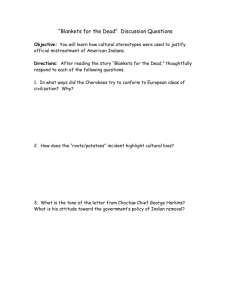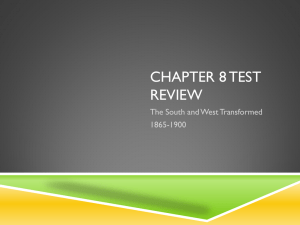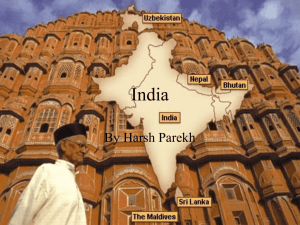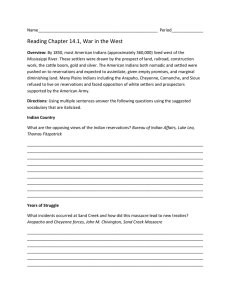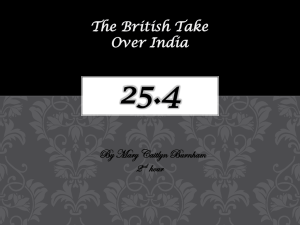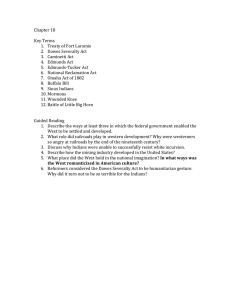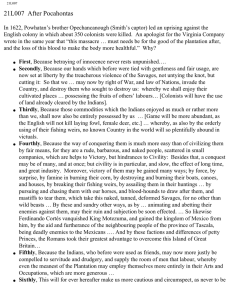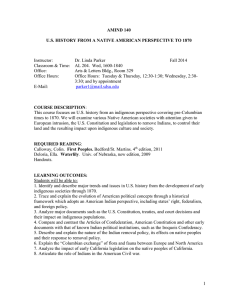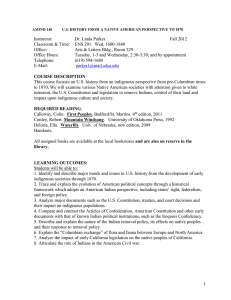ABSTRACT THESIS: STUDENT:
advertisement
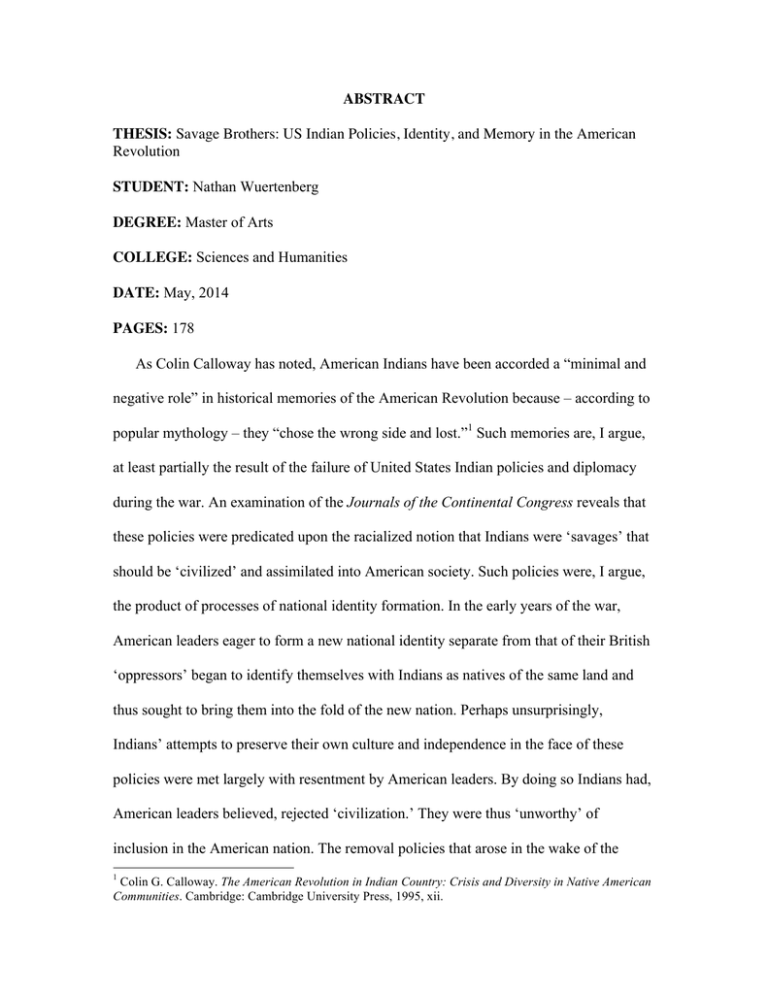
ABSTRACT THESIS: Savage Brothers: US Indian Policies, Identity, and Memory in the American Revolution STUDENT: Nathan Wuertenberg DEGREE: Master of Arts COLLEGE: Sciences and Humanities DATE: May, 2014 PAGES: 178 As Colin Calloway has noted, American Indians have been accorded a “minimal and negative role” in historical memories of the American Revolution because – according to popular mythology – they “chose the wrong side and lost.”1 Such memories are, I argue, at least partially the result of the failure of United States Indian policies and diplomacy during the war. An examination of the Journals of the Continental Congress reveals that these policies were predicated upon the racialized notion that Indians were ‘savages’ that should be ‘civilized’ and assimilated into American society. Such policies were, I argue, the product of processes of national identity formation. In the early years of the war, American leaders eager to form a new national identity separate from that of their British ‘oppressors’ began to identify themselves with Indians as natives of the same land and thus sought to bring them into the fold of the new nation. Perhaps unsurprisingly, Indians’ attempts to preserve their own culture and independence in the face of these policies were met largely with resentment by American leaders. By doing so Indians had, American leaders believed, rejected ‘civilization.’ They were thus ‘unworthy’ of inclusion in the American nation. The removal policies that arose in the wake of the 1 Colin G. Calloway. The American Revolution in Indian Country: Crisis and Diversity in Native American Communities. Cambridge: Cambridge University Press, 1995, xii. Revolution were, I argue, partially an outgrowth of this belief. By removing Indians westward, American leaders could push them out of both sight and mind while conveniently forgetting their own diplomatic failures during the war. In the process, they positioned Indians in popular American memories of the Revolutionary War as ‘savages’ that ‘chose the wrong side and lost.’

